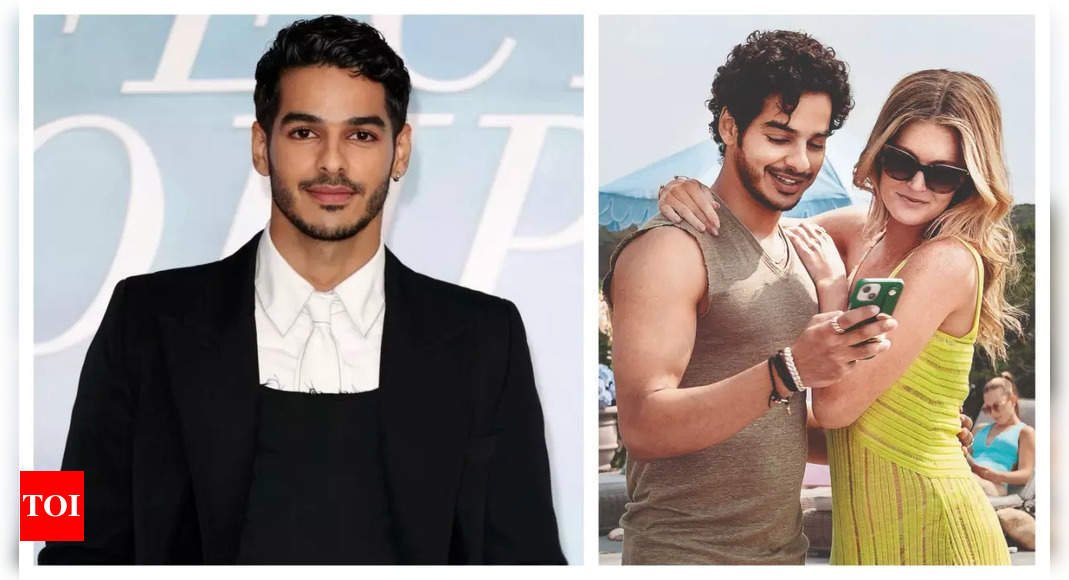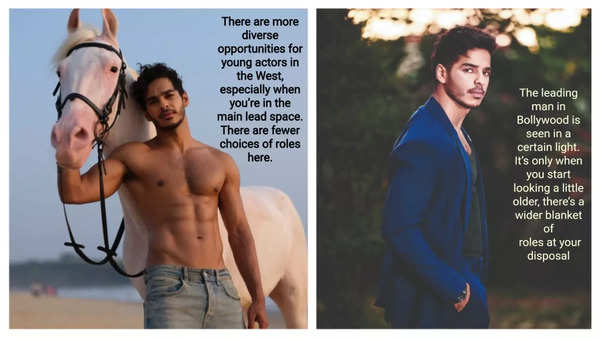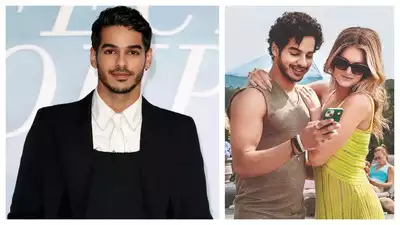
“If you see young actors here, their careers start shooting in their late 20s or 30s. My brother (Shahid Kapoor) and I both started young. We were 21. So, we’ve seen that lack of opportunity when you are raring to go”
The language of cinema is universal. While various Bollywood actors have dabbled in international films, Ishaan Khatter’s promising Hollywood debut in Nicole Kidman-starrer The Perfect Couple came as a pleasant surprise. Be it Beyond the Clouds, Dhadak or A Suitable Boy — Ishaan has pushed boundaries from the word go. In a conversation with Bombay Times, the actor reveals what prompted him to head West, carving his own identity, rapport with big brother Shahid Kapoor and how he’s in a phase of self-discovery. Excerpts…
You had a blink-and-miss appearance in the Leonardo DiCaprio starrer Don’t Look Up, while in the recent web show The Perfect Couple you were a huge surprise. We saw you in a significant, non-stereotypical role. Also, not trying too hard to fit into an American show. How was the experience of blending in?
I wanted it to be distinct and clutter-breaking. My debut film Beyond the Clouds was largely an Indian crew. Of course, Majid Majidi brought his vision to the film that was very different and distinct. And even Mira Nair’s, The Suitable Boy, was shot in India, and these were Indian stories. The Perfect Couple is a very American story and it’s very different to be part of an entirely American shoot. I saw the opportunity when I read the part. I couldn’t draw a reference for it. It was a completely different experience from anything I’ve done before.
Your accent on the show didn’t seem put on. How did you work on that?
It was something that I partly worked on with Susanne Bier (director). The way I read the role it didn’t make sense to me that I would be the only character speaking with a slightly different accent. So, I said, maybe we should go with a standard American accent. And she said, go ahead. I was given that freedom. The lack of stereotyping was interesting.
Indian actors are often stereotyped in non-glamorous, fairly insignificant roles in commercial Hollywood films. Do you see that gradually changing with time?
I don’t know if I can speak for an industry at large. The part I was offered is proof enough that times are changing, and I think it’s a milestone in that sense. I do know that they were open to casting pretty much across the board, irrespective of ethnicity. To me, that’s the bigger step, that they’re looking at parts not locked in with race or ethnicity but what an actor can bring to a character.
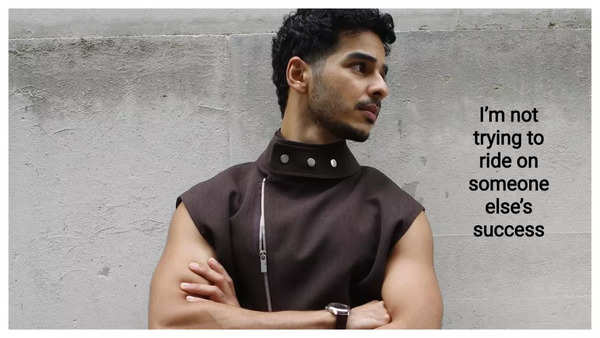
Ishaan Khatter
When you are romancing someone as supremely talented as Tabu on screen or facing a force like Nicole Kidman on camera, do you ever feel nervous? How do you break away from that sense of awe and step into your part?
I would be lying if I said that I’m not in awe of these people. I love their work. I’ve grown up watching them and I’m lucky. Who gets to work with Tabu as a romantic pair or with Nicole Kidman this early in their career? I just say thank you God, and do the work. When good things happen to me, I don’t know if it’s my defence mechanism, but I just treat them like it’s just another part, just another day. Also, I’ve never been in a hurry. My priority was always to become capable before doing anything.
What prompted you to head West? At 28, did you feel the scope was limited for a young actor like you here?
There are more diverse opportunities for young actors in the West, especially when you’re in the main lead space. There are fewer choices of roles here. The leading man in Bollywood is seen in a certain light. It’s only when you start looking a little older, there’s a wider blanket of roles at your disposal. I can’t complain because I’ve had some wonderful opportunities despite that. But, yes, that’s how it is. If you see young actors here, their careers start shooting in their late 20s or 30s. My brother (Shahid Kapoor) and I both started young. We were 21. So, we’ve seen that lack of opportunity when you are raring to go. Also, when you grow up on a certain kind of cinema, it shapes your sensibilities. You want to push yourself as an actor early. It was a good time for me to try something new. I’m still in a phase of self-discovery. I’m in a place today where I know myself better, so I back myself more.
I don’t want to be here for a hot moment and then be forgotten. I am here for the long haul.
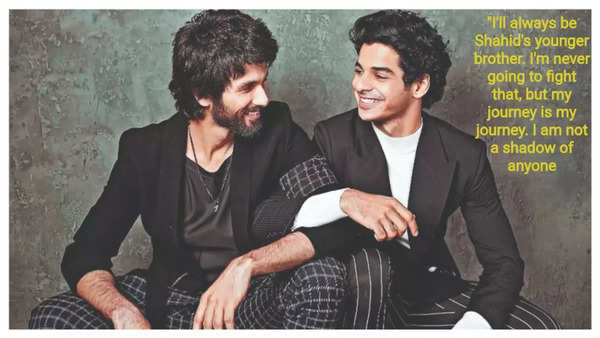
Brothers Shahid Kapoor and Ishaan Khatter
Speaking of looking older, both you and Shahid have baby faces. Is that a boon or a curse?
I kind of take it in my stride. I think of it in a positive way because I know it’ll work out for me in the long run (smiles). Like baby face is not such a bad thing. It’s a blessing in disguise, yeah. The audience has been fairly kind to me, but I have miles to go before I can sleep. I have my eyes on the long road ahead and I want to reach out to more people.
What goes through your mind when some people refer to you as Shahid Kapoor’s brother?
I was 21, on the stage of my first film’s trailer launch when I was asked about this. Someone had asked me if there was competition back home? Perhaps, this is the public perception. But to me, I see it as a blessing that I have an elder brother that I share a common passion with, which is cinema. I can learn from him, we share notes. And the thing is, I know that I’m the younger brother, and that’s not something that I need to fight. My journey is my journey. When you have a certain confidence in yourself, it comes from the fact that I know who I am. I am not a shadow of anyone. I’m not trying to imitate anybody. I’m not trying to ride on someone else’s success. This is who I am. This is what I want to do and I’m happy with that.

